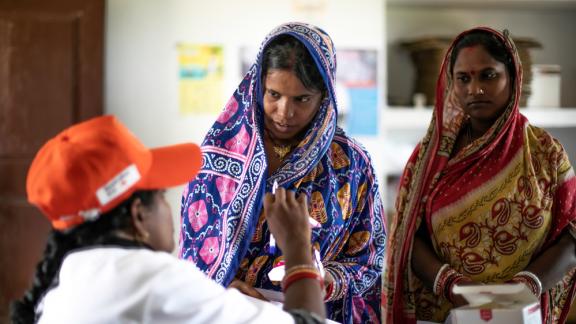The Guttmacher Institute and the International Planned Parenthood Federation (IPPF) today released Spanish and French language versions of Demystifying Data: A Guide to Using Evidence to Improve Young People’s Sexual Health and Rights. The publication, which is also available in English, is designed to be a resource for advocates, sexuality educators, young people, service providers and others working to advance the sexual and reproductive health and rights of young people around the world. It contains a wealth of data on young people’s sexual health and rights in 30 countries and offers guidance on how to use those data to advocate for better programs and improved education and services.
The guide highlights 70 key indicators on issues that include sexual activity, marriage and contraceptive use. Each indicator is defined and discussed in terms of how it can be applied in the context of advocacy, service provision and sexuality education.
The data featured in the guide come from nationally representative surveys on sexual and reproductive health and were the latest available at the time of writing (i.e., the data span the survey years 2002 through 2010-2011). National-level data are provided for each country so that users can understand what is happening in their country and easily compare it to others in their region.
By region, the countries covered are:
Africa—Democratic Republic of Congo, Egypt, Ethiopia, Ghana, Kenya, Malawi, Mozambique, Nigeria, Rwanda, Senegal, Tanzania, Uganda, Zambia and Zimbabwe
Asia—Bangladesh, Indonesia, India, Nepal, Pakistan, Philippines and Vietnam
Europe—Albania, Moldova and Ukraine
Latin America and the Caribbean—Bolivia, Colombia, Dominican Republic, Guatemala, Honduras and Peru.
Data from the Dominican Republic, for instance, show that 88% of boys and 90% of girls attend primary school, but that just 38% and 53%, respectively, attend secondary school. Thus, policymakers and youth advocates could use these data to show why it is critical to deliver sexual and reproductive health and rights information when young people still attend primary school. This would enable boys and girls to learn how to avoid unintended pregnancy and STIs, and how to cultivate healthy intimate relationships before most begin having sex.
IPPF and Guttmacher work in all of the above world regions to increase public awareness about sexual and reproductive health issues and to counter misinformation with sound scientific evidence. The Spanish and French versions of this guide take another step toward that goal by reaching out to a wider audience of stakeholders to promote better policies, service delivery and sexuality education.
when
country
Brazil, Kenya









